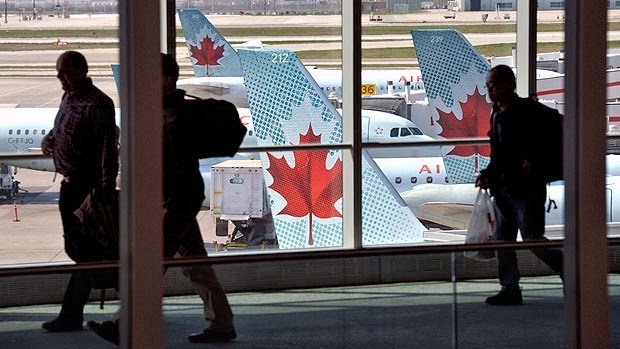
Tory throne speech to change channel with NDP ideas
The Conservative government is set to return Wednesday with a throne speech that will avoid the senate scandal by taking pages out of the opposition’s – notably the NDP’s – playbook.
The upcoming throne speech will remark a change in direction in Conservative policy, one that would lead to a more interventionist government in the consumer economy. It can also be seen as a last resort to get people’s minds off of the ongoing senate scandal which continues to dig deeper into Harper’s political reputation.
The move comes in a last-ditch resort to try to regain a large chunk of Conservative support that left when Justin Trudeau became Liberal leader and when the senate scandal started to dominate airwaves. As a result, Industry Minister James Moore is touting the Conservatives as “the party of the middle class,” a catch phrase the Liberals have been campaigning on since Trudeau’s leadership run earlier this year.
“We’re driving towards a balanced budget, and another way to help Canadians is by putting more money in their pocket by making sure consumers come first,” Moore said.
The government’s approach will be heavy-handed and interventionist, including mandating TV pricing, capping cellphone roaming rates, tackling credit fees and breaking monopolies in the telecom sector. These are all aspects the Conservatives wouldn’t touch, often arguing such interventions would be bad for the economy.
The Harper government will introduce policies to:
- Intervene in the cable market to dismantle the current bundling system to allow consumers to “pick and pay” for individual channels
- Increase competition in the wireless sector
- Intervene in the telecom sector and cap domestic cellphone roaming fees
- Intervene in the credit market, addressing credit-card fees, particularly those paid by small businesses.
The Harper government is also looking into:
- Policies to address overselling of flights
- Policies to close the gap on Canada-US pricing discrepancies
“When we put together a list of things that frustrate consumers on which the government can take action, the list gets long very quickly,” Moore said. “Some of these things get taken care of in the free market, I’m a free marketeer, free enterprise guy. In other circumstances they can’t be, and responsible government action is needed.”
This narrative sounds like something the Liberal Party has been saying for years. Some of the specific policies the Conservatives intend to introduce are those the NDP have spoken about for a while, in fact, some are even reminiscent of things the NDP had in their platform.
In this regard, the NDP platform wanted to:
- Cap interest rates of credit cards at 5%
- Increase powers of financial regulators to ban excessive interest rates
- “End unfair bank and credit card transaction charges for both consumers and small businesses”
- “Give consumers control over cell phone bills”
While the procedures may arguably be different, there is no doubt the Conservatives took a look at the NDP platform and took the Liberal narrative.
We have yet to see how the Conservatives really implement these ideas and how it will really effect consumers, but the Conservatives are trying to become the new Natural Governing Party. While that title has traditionally been kept for the parties of the centre (The Liberals and at times the Progressive Conservatives), the Conservatives are viciously fighting to take it, a task that won’t be easy given their current perception as a radical right-wing party, and their current stubs in procurement, public safety, and accountability.
“Contrary to the perception of some, the Conservative Party is not the party of big business, the Conservative Party is the party, we are the party of the middle class,” Moore said. “It’s not Justin Trudeau, it’s not Tom Mulcair. We are the party that believes in lowering taxes on Canadian families, balancing the budget, putting more money into the pockets of individual families.”
The opposition is fighting back, NDP leader Thomas Mulcair blasted the Conservatives for their actions.
“Actions speak louder than words,” Mulcair said. “We had an airline passenger bill of rights before the House and the Conservatives voted against it. In fact, every time there has been a consumer measure in front of the House the Conservatives have voted against it.”
The Conservatives twice, in 2007 and 2009, rejected the very notion of intervening in the airline industry to protect consumers.
The Competition Bureau estimates interest fees cost small businesses over $5 billion per year and are the highest in the world. This is an issue the NDP would have tackled given a mandate, and is now an issue the Conservatives are looking at.
What do you think of the sneak peek of the Conservative throne speech? A new means to dodge the senate scandal? An actual attempt to improve consumer services? A strategic attempt to snuff the opposition?



